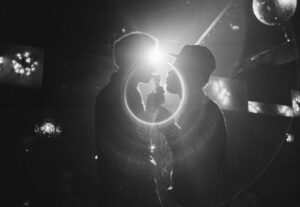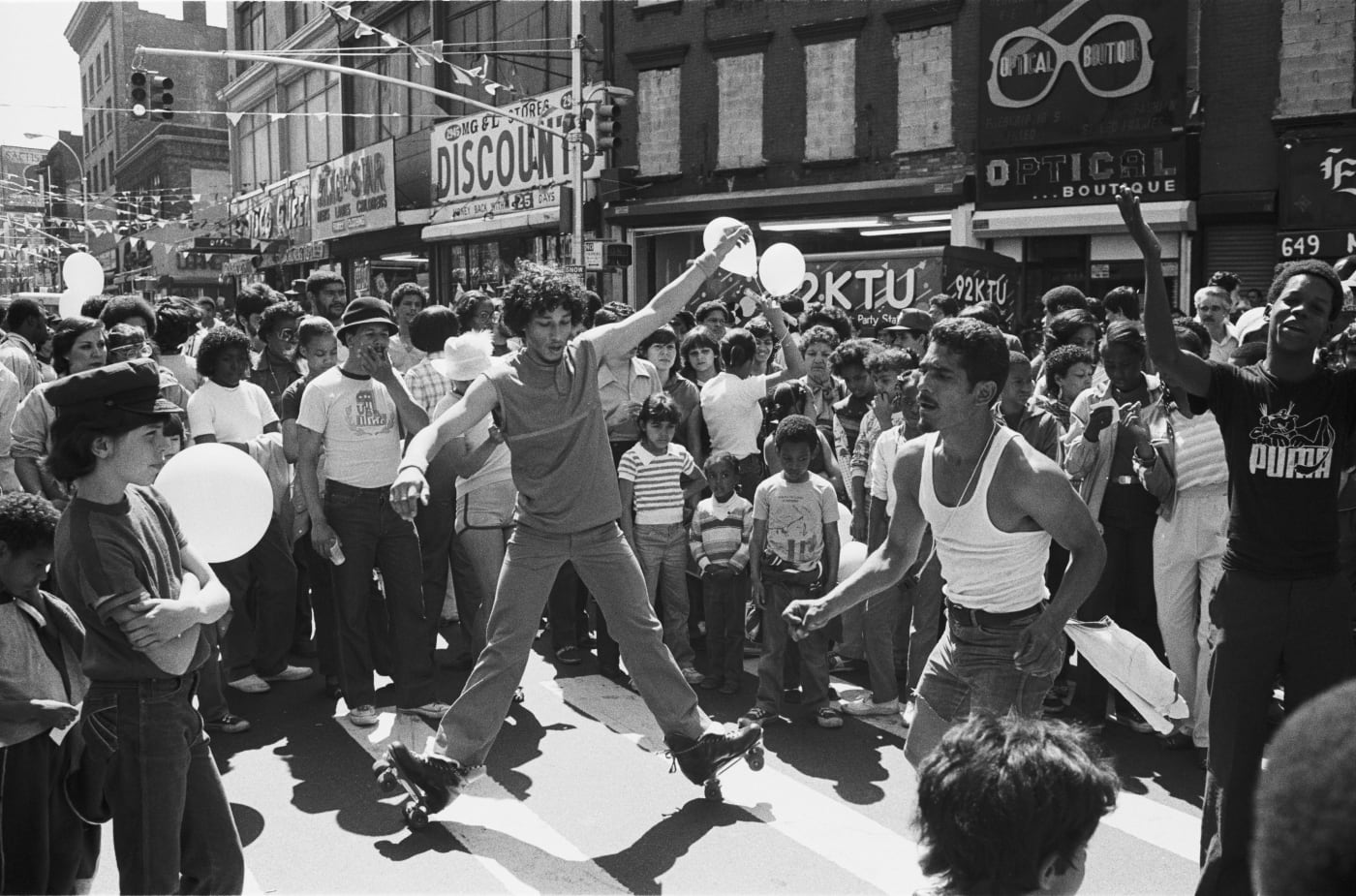Graffiti-covered walls and old-school tunes spun by a DJ set the retro scene for some 100 patrons who came to experience an evening of South Bronx nostalgia at the Bronx Documentary Center in late March.
Street art of the 1970s and 1980s are the backdrop for the photographs of Joe Conzo Jr., whose work commemorates the resilience and vibrancy of the neighborhood he grew up in.
“Conzo: A Look Back at the Bronx, 1977-84,” opened to a full house, with original negatives from Cornell University’s “Cornell Hip Hop Collection.” The prints in the exhibition were printed in the Documentary Center’s own darkroom.
The exhibition documents the early days of hip hop, as well as daily life across the South Bronx, when arsons and extreme poverty ravaged the area. Conzo’s stepfather, an amateur photographer, encouraged young Joe to document the color and the chaotic scenes that surrounded him.
“I just gravitated towards it,” said Conzo, whose childhood home was across from Lincoln Hospital.
“To me, this exhibition is like coming home,” he said. “I’ve been part of some of the biggest exhibitions all over the world – with some of the biggest photographers in the world. But to actually come home, two blocks away from where I grew up at, where I took a lot of these pictures at to have a solo show – it’s overwhelming.”

Tracing his evolution as a photographer, Conzo recalled one photo he snapped more than 40 years ago, “Club Negril, Manhattan, 1981,” that he hated when he took it, but that 40 years later, he has flip-flopped on, because of the perspectives of other people. Now it’s his favorite.
The Documentary Center originally wanted to do a solo exhibition of Conzo’s work to commemorate hip hop’s 50th anniversary last year, but later floated the idea to him about a solo exhibition with works specifically about his home neighborhood.
Before the exhibition started, the Documentary Center’s organizers asked Conzo what he wanted the public to take away from it.
“For him, it was really about being transported back in time. He wanted people to be able to feel like they were in this part of the Bronx during this time, and got to kind of feel a little bit of what he felt when he was photographing,” said Cynthia Rivera, the Center’s exhibition manager. Conzo’s work challenges stereotypes associated with the South Bronx’s recent history, she said.
“Without him, there would be a lot missing and not just of hip hop but the South Bronx in general,” she said. “There would probably be more news reports of the fires, and not necessarily the protests and high school walkouts… all the photographs he has of all of the famous Latin jazz musicians – all of that would not exist.”

